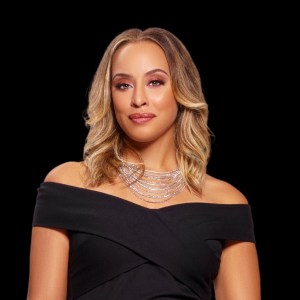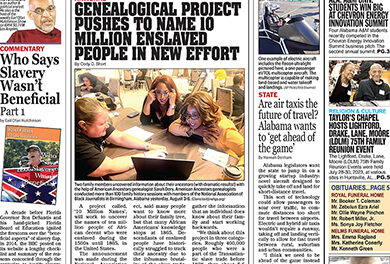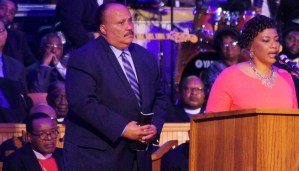
Frenchye Harris, Founder of The Black Fashion Movement and Harper Street Consulting. (Courtesy photo)
By Nadine Matthews
Special to the AFRO
“Less than 1% of Black-owned brands are carried by retailers,” Frenchye Harris told the AFRO in a recent interview. “It leaves them out of the conversation. And the Black fashion movement is trying to shift that narrative because it’s not about waiting for retailers to welcome Black-owned brands. It’s about creating our own space.”
The Ohio native has worked in the fashion industry for over 20 years. “I’ve always been on the PR and marketing and events side of the business.”
Harris, who received her BA in fashion merchandising at Ohio State University and masters degree in public relations at John Carroll University, knew what she wanted to do from an early age. “I fell in love with fashion at 9-years old at the Ebony Fashion Fair,” recalls Harris. “My mom’s and now my sorority, Alpha Kappa Alpha, would do an annual scholarship fundraiser where they brought the Ebony Fashion Fair.”
Harris stated that, “When I finally got to go, I was blown away. I got to see beautiful Black people, in high fashion, in this beautiful production. I didn’t know exactly how I would do it but I knew I wanted to do it.” Harris started modeling in the eighth grade and later produced fashion shows for her high school.
The former Regional Public Relations Manager for Nordstrom, where she worked for six years until 2020, has always had the desire, she said, “to help emerging brands and Black-owned brands. Though she loved her experience at Nordstrom, she did see a vacuum in the industry, for Black-owned clothing brands.
Part of the reason, she observed, was that “Until the summer of 2020, Black people in many fashion companies just didn’t have a seat at the table at the executive level. That trickled down to who they were marketing to, and who were making the products they were carrying.” The Black Fashion Movement she explained “had been addressing those issues before 2020. That had been our mission all along.”
The catalyst for Harris starting Harper Street Consulting and the Black Fashion Movement,” she explains, “was to help Black-owned brands start having conversations with retailers, and to expose Black-owned brands to the fashion industry.” In 2020, she launched via social media. “It was me celebrating Black History Month on Instagram through the lens that I knew, which was fashion,” she stated.”The posts made such an impact, Harris continued past February, eventually adding IG live interviews and events with designers, stylists, and the like.
In September of 2020, the online movement grew into a national phenomenon. “After meeting with Trademark Properties, the Black Fashion Movement Luxury Shopping Experience was born.”
Partnering with malls, Harris said that BFM, “goes into an empty storefront space and makes it a luxury shopping environment. It creates an opportunity for the consumer looking for Black owned brands, and for the designers who often don’t get to sell from a retail space.”
To the question as to whether or not that will usher in segregated shopping, she stated, “In order for Black-owned brands to survive, they have to have their own retail establishments. You have to create spaces for that to happen.” The pop-up retail spaces feature women’s and men’s clothing, beauty items, jewelry, accessories, and items for the home from designers based in a number of states.
Although Trademark Properties, which ultimately rents the spaces, is not Black-owned, Harris points out they’ve been proactive about working with Black-owned businesses. However, all of the vendors BFM uses are Black-owned. “From the photographers to the graphics team, to the PR team, they’re all Black-owned businesses.”
Many consumers, she says, have never had the opportunity to shop luxury Black owned brands, “In a retail space that felt like a retail space, with consistent price points and complementary brands.”
Harris often heard, “I want to support Black-owned brands, I just don’t know where to find them,” and wanted to do something about that, “It showed there was a gap in the fashion industry. People shouldn’t have to go out and look for Black owned brands. We wanted to normalize them being readily accessible.”
Harris, who is based in Chicago, points out that in 2022, the Black community will have $1.7 trillion of buying power. “If just 25% of that went to Black-owned businesses, the impact that would have on our communities would be groundbreaking.“ As consumers, we get to decide where to spend that money.”
For more info, follow @theblackfashionmovement on Instagram and Facebook, or visit www.theblackfashionmovement.com.
Help us Continue to tell OUR Story and join the AFRO family as a member – subscribers are now members! Join here!
The post Fashion vet Frenchye Harris wants to normalize access to Black-owned brands appeared first on AFRO American Newspapers .










